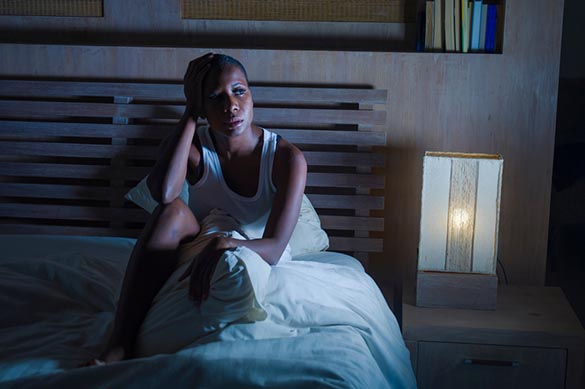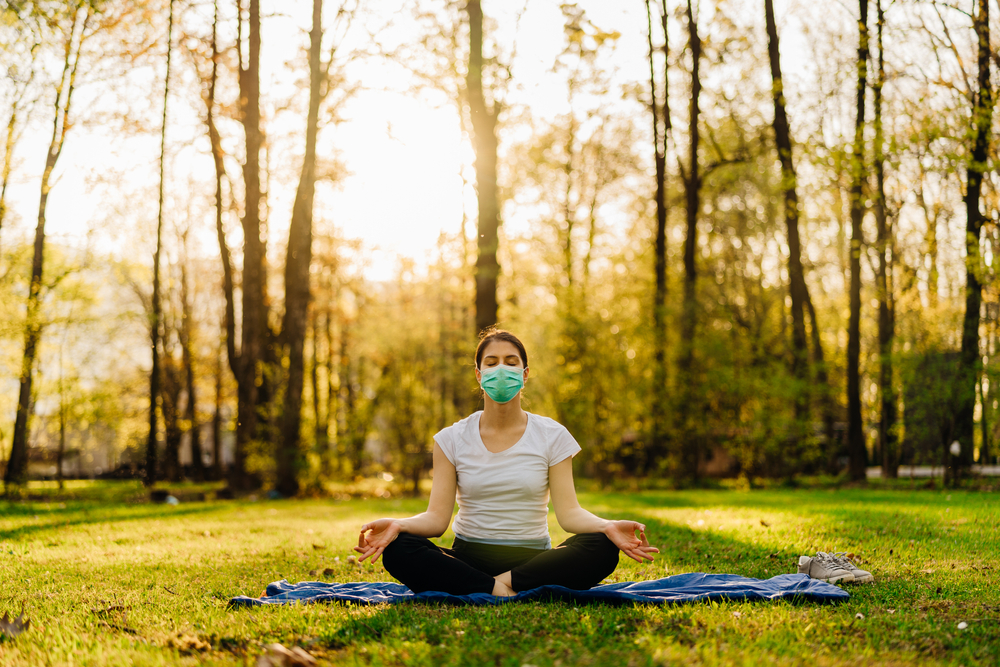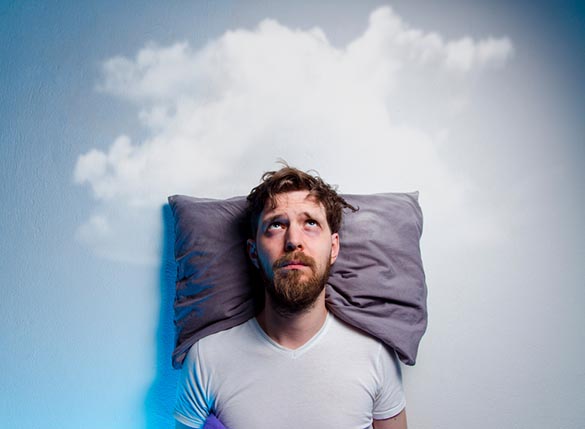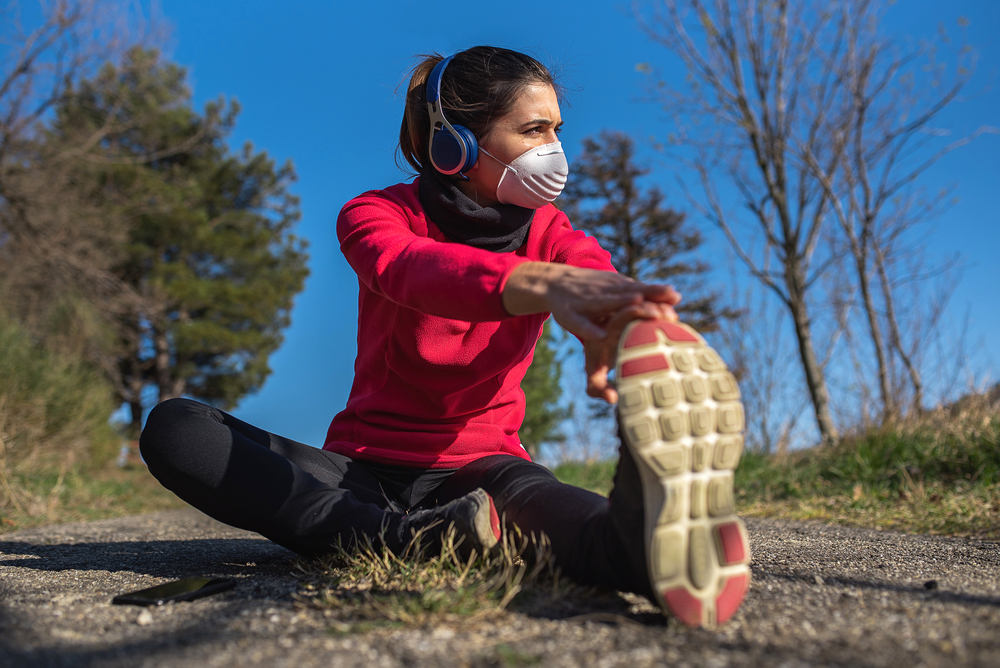![Sleep-Versus-Stress-Which-One-Will-Rule-the-Night[1]](https://thelifepilot.com/wp-content/uploads/2022/11/Sleep-Versus-Stress-Which-One-Will-Rule-the-Night1.jpg)
Prior to the culmination of events which 2020 has piled on month after month, the National Center on Sleep Disorders Research estimated that upwards of 40 million Americans already suffered daily from at least one sleeping-related disorder. Now, the stress level of the world seems to skyrocket by the moment, and so do the sleep-related disorders we see developing or presenting continue to climb. This is because sleep and mental stress are intrinsically linked.
Normal levels of stress are processed by healthy, neuro-typical bodies without issue. In fact, stress often serves to motivate and encourage us to work harder and do our best thinking. However, when that stress exceeds what our minds are used to or potentially capable of handling, the effects appear in several symptoms. Two of the most common being sleeplessness and anxiety.
How Extraordinary Stress Hurts Easy Sleepers

During our normal, everyday lives, we are all faced with differing levels of stress. Ordinarily, our bodies can respond by releasing the appropriate levels of stress hormones (such as adrenaline and cortisol). This triggers the commonly known ‘fight-or-flight’ response, our default answer to a dangerous challenge or fearful situation. This evolutionary, biological, neurological response is automatic, and has helped to preserve the longevity of the human species for as long as we have existed.
However, these are unprecedented times, and the human body has never had the need to adapt to conditions as they currently are. When the body is under stress constantly, it can overload your nervous system, not allowing it to subside, which can have disastrous effects on even the healthiest sleepers.
People who have never experienced sleep issues before may suddenly find themselves in frightening, new territory now. And for those of us already afflicted with a sleeping disorder prior to this year, our situation is no less difficult even for our familiarity with it.
Why High Stress Can Worsen Insomnia

If you too have suffered from insomnia for a considerable amount of time, you may be having strange sleep happenings during these odd times too. Many folks have self-quarantined due to CDC recommendations and state-mandated guidelines, leaving people with normally busy outside lives with nothing to occupy their time.
Naps are tempting to us all; especially with their ready availability to those who are quarantined. When used appropriately, naps can be an excellent sleep tool. Short naps- 30 minutes or less- can boost your energy and give you the jolt you may need to get through a particularly difficult or sleepy day. But any longer and you risk doing more harm than good to your sleep schedule. And as a practicality, you simply cannot deal with chronic sleep problems by trying to find a place for a midday nap every day.
Now without the distractions of work and responsibilities which enable some insomniacs to pull themselves out of bed in the morning, many people are finding difficulty in getting out of bed at all. If you or a loved one are sleeping excessive hours- or not sleeping at all- consult a physician as soon as possible and consider asking about depression and insomnia.
Connectivity Can Foster Calm

The American Psychological Association conducted a massive study regarding stress in America, and broke down the top five most common sources of stress in the nation. As of 2017, those top five stressors were:
- The Future of Our Nation
- Money
- Work
- Current Political Climate
- Violence and Crime
While today the percentages may have shifted and the rank of each source might have changed, but likely these have not changed in the few years since. If anything, they have worsened, leaving Americans in increasingly poorer mental health due to stress. But what can be done, when quarantined or unemployed, or perhaps even both?
In that same report, the APA states that of those who partook in the study, 74% felt they had someone in their lives whom they could go to and rely on for emotional support. This is far from surprising; the first option for many of us when we’re feeling overwhelmed is to look to friends or family. In fact, 57% of people said they seek time with their friends and family as a way to manage stress.
Human beings tend to be social creatures, and sharing our worries with those we trust is by far the best way to ease stress. Whether that is a family member, friend, therapist, or even a trusted co-worker, humans tend to seek out one another during catastrophe.
The Solution Can Be A Problem – A Vicious Cycle

But what does reaching out to loved ones look like in the time of Covid-19 and social distancing?
Keeping in contact with your friends and family while still maintaining the recommended social distancing safety guidelines can take many different forms depending on your lifestyle and circumstances. Video calls and online methods of communication have become increasingly popular in recent years, and have since been a saving grace for those looking to stay connected during recent times. Even some therapists have begun offering audio or video sessions with clients, to continue work while safely apart.
Some, however, have no one to reach for. Or simply don’t find enough relief in giving a voice to their worry. In the APA study previously mentioned, Americans were surveyed regarding their preferred pastimes for managing stress. Nearly tied for second were listening to music and exercising, respectively.
Alternative Sleep Solutions

Music has a profound effect on the human mind, so much so that thousands of years and as many studies have been devoted to understanding the mysterious connection. While the ‘why’ may still be scientifically ambiguous, the results of each study confirm the same thing: music has the unique power to alter a person’s perception. Finding the right tunes for you can make a big difference. It can guide your mind to better thoughts, or simply provide a free, enjoyable distraction.
Likewise, exercise is another alternative that is ideal for the mind and body. Exercise provides a way for your body to burn off its pent-up cortisol and adrenaline, allowing your system its much-needed cool down and restoration. Walking is the most popular form of exercise for this, as it is simple, easy, and accessible to most people.
When ‘Really Bad’ Becomes ‘Too Much’

Unyielding stress for a prolonged period of time won’t likely just: go away.
It can dangerously raise blood pressure, adding additional stain to your heart and circulatory system. This can make your heart beat rapidly, as well as speed up your breathing or even cause hyperventilation. It can feel like being forced to hold your breath, unable to inhale, or mimic the physical sensation of a panic attack. And those are only the beginning of the long list of side effects that extreme stress can have on the body.
Constant stress keeps your muscles tense, which can lead to headaches, neck strain, and even pulled muscles. As previously mentioned, cortisol is a by-product of stress. In small amounts, cortisol does what the body needs for fight-or-flight. However, in excess, cortisol can cause you to crave fatty foods, leading to weight gain. Cortisol can also trigger your stomach to produce more acid than necessary, causing heartburn and acid reflux as well as inflammation, all of which severely compromise your immune system.
Your mind is affected by all of this as well, from your overall mood to tissue healing to blood sugar processing speed. An Australian team of scientists studying the effects of stress on the lymphatic system called stress a ‘fertilizer for cancer’, showing in their research where stress severely increased the rate of spreading tumors.
Consider Supplements for Lowering Stress & Sleeping Better

If all of these tips for managing stress and prioritizing sleep have left you still in a panic, uneasy and uncertain, don’t fear. There are more options. Medication is often a last-resort for many, and understandably so. But there are choices which don’t require a lengthy wait for a doctor’s visit for an overpriced knock-off prescription.
When seeking a supplement for easing stress and anxiety, we prefer the most holistic, natural ingredients only. Look for something high in B12 and GABA, at the very least. Both of these are naturally occurring in the body, and a supplement containing them will work well with your natural sleep chemistry. Additional B vitamins are always a plus, as is L-Theanine and Valerian Root.
Our top pick when it comes to such a supplement is Alpranax Herbal Stress Management.
Just treating daily stress may help you find an easier navigation through the day, which would be a fantastic result. But if you nonetheless find yourself still struggling to sleep at night, there is no harm in adding a natural sleep supplement as well. When it comes to sleep aids, the right amount of melatonin is essential, but not everything. Be sure you pick a balanced supplement, which won’t make you pass out, but allow you to fall asleep.
Our choice for a sleep supplement, which also works well with the previously mentioned Alpranax, is Avinol PM Liquid Sleep Drops.






